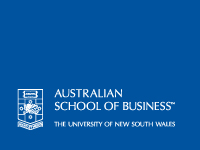|
||||||||||||||||||||||||||||||||||||||||||||
| Services Marketing - Trsm&Hosp - 3571 | ||||||||||||||||||||||||||||||||||||||||||||

The Bachelor of Commerce (BCom (Services Marketing – Tourism and Hospitality)) prepares students for management positions in the rapidly growing tourism and hospitality industries. Students receive rigorous grounding in business fundamentals, as well as major studies in Marketing, Tourism and Hospitality. These studies are combined with hands-on industry training and work experience. For detailed information on the professional recognition this degree offers please visit Professional Recognition of Programs in the UNSW Online Handbook. Program Objectives and Graduate Attributes On successful completion of the BCom (Services Marketing – T&H), students will have the ability to:
Students should always follow the program requirements according to the year they started their degree. For more information please visit Previous UNSW Online Handbooks.
Studies leading to the award of the Bachelor of Commerce (Services Marketing – Tourism and Hospitality) degree normally consist of 192 UOC or 32 courses to be completed over 4 academic years. These UOC need to be made up of:
Compulsory core courses account for 24 UOC (4 courses)
Flexible core courses account for 24 UOC (4 courses). Students should choose 4 courses from the following list:
Majors: Students complete a major in Services Marketing - Tourism & Hospitality (54 UOC) and a major in Marketing (48 UOC). The 48UOC for the Marketing major includes the introductory disciplinary course in the Flexible core courses. At least 18 UOC of each major must be at level 3 or higher.
Tourism Elective accounts for 6UOC. To fulfil this requirement, students complete either LEGT3001 or ECON2117. Free Electives: Students may have up to 5 (30 UOC) of Free electives. These UOC may be taken in courses within the ASB or from other Faculties. General Education requirements account for 12 UOC (2 courses) which must be taken outside the Australian School of Business. Suggested Program plan: Year 1: Core Concepts and Principles
*ECON1102 is required if ECON2117 is taken in Year 3
Year 2: Core Concepts and Principles
Year 3: Management Techniques
Year 4: Solutions and Strategies
General Education Requirements General Education requirements account for 12 UOC (2 courses) and are to be taken outside the Australian School of Business. These courses allow you to select either courses that were developed especially for the General Education Program (beginning with a GEN code) or to choose 'mainstream' courses that are offered in degree programs in other faculties. For further information about General Education Requirements please refer to the UNSW Online Handbook.
Please note that students enrolled in programs within the Australian School of Business cannot take General Education courses offered by the School. These restrictions also apply to the following courses:
If students are unsure of their General Education Requirements they should contact the Australian School of Business Student Centre (Ground floor, West entrance, Australian School of Business building)
High achieving students may apply to undertake honours in the area of their Commerce major. Honours is an additional year of full-time study which provides students with advanced knowledge of their chosen field and develops research and communication skills. Students usually complete advanced courses/seminars and a thesis. Students interested in studying at Honours Level should refer to the relevant Honours plan record for entry requirements and contact the Honours Co-ordinator in the relevant School.
Rules relating to the award of the degree of Bachelor of Commerce shall apply wherever relevant. Students are advised to consult the Academic Rules for further information
For information regarding fees for UNSW programs, please refer to the following website: https://my.unsw.edu.au/student/fees/FeesMainPage.html
For further information, refer to the Professional Recognition of Programs in the UNSW Online Handbook.
Entry is by academic achievement and additional selection criteria, for more information please refer to the application procedure.
Please note that these requirements may be subject to change. Students should always follow the program requirements according to the year they started their degree. For more information please visit Previous UNSW Online Handbooks. Contact the Australian School of Business Student Centre for advice. tel: + 61 2 9385 3189 location: Ground Floor, West Wing, Australian School of Business Building Forms, policies and procedures Frequently asked questions |
||||||||||||||||||||||||||||||||||||||||||||


